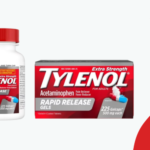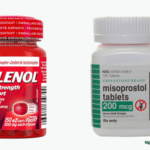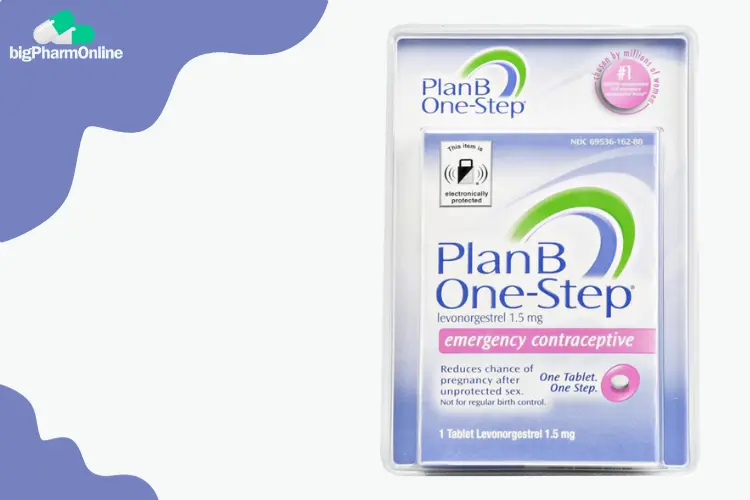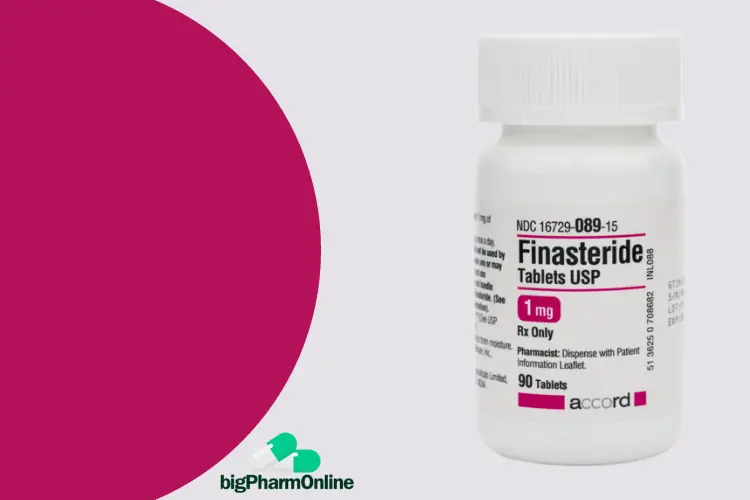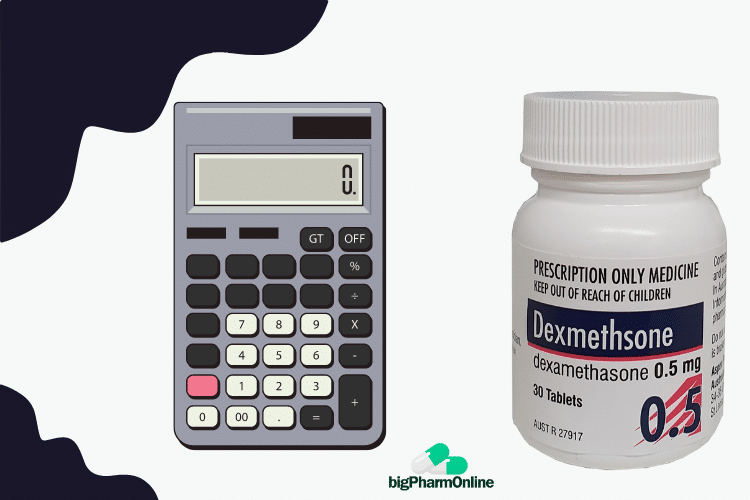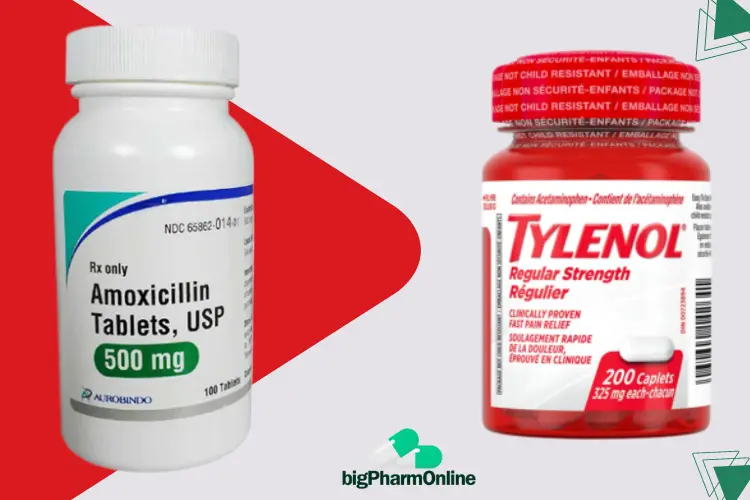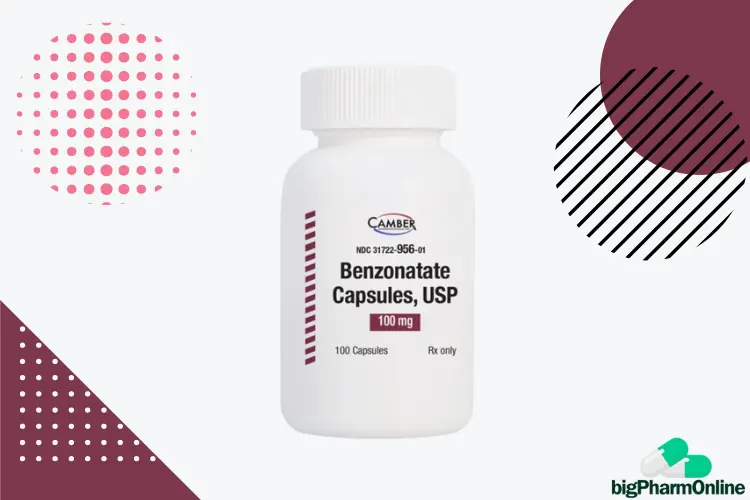Can You Take Dicyclomine With Tylenol?
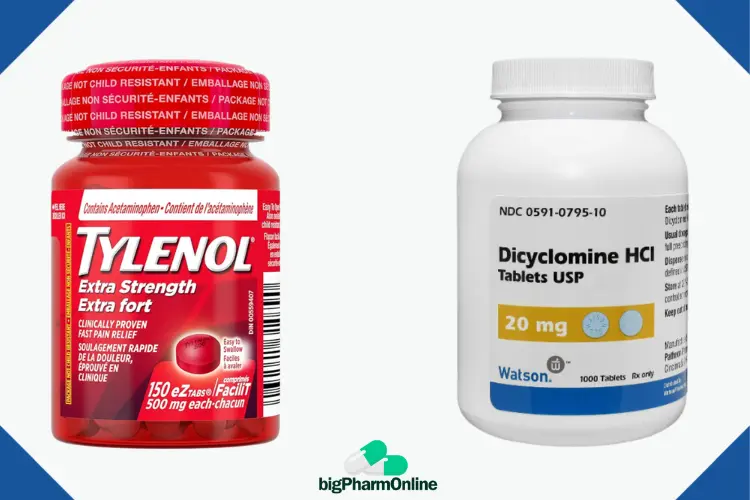
Pain, regardless of the cause, is an unpleasant experience that can bring a whole lot of discomfort. Knowing what to take to gain relief while also questioning oneself about the compatibility of the available options is another thing that can add to the throes of the discomfort it brings.
In this article, the pharmacist will discuss whether it is safe to take Dicyclomine with Tylenol. He will also explain the possible concerns, correct dosages, and how to circumvent the potential concerns involved with the co-usage of Tylenol and Dicyclomine, if any.
Key points
- It is safe to take Dicyclomine with Tylenol (acetaminophen) as there is no known major or clinically significant interaction between the two drugs.
- There are combination drug products containing both Dicyclomine and acetaminophen, indicating the safety of using them concurrently.
- The recommended adult dosage of Dicyclomine is 20-40 mg orally every 6 hours, up to 80 mg maximum per day. It should be taken 30-60 minutes before meals for best effect.
Can You Take Dicyclomine With Tylenol?
It is safe to take Dicyclomine with Tylenol because there is no documentation of any major or clinically significant interaction between the two drugs.
There are combination products containing both Dicyclomine and Acetaminophen which is the active ingredient in Tylenol, without any record of either of the two drugs reducing the effectiveness or increasing the side effects of the other.
There may be concerns about Dicyclomine reducing the absorption of Tylenol in the intestine due to its ability to stop the smooth muscles in the gastrointestinal tract from contracting. Thereby reducing the movement of substances through it.
This concern is very minimal and purely theoretical. It has no backing whatsoever from clinical research or any other form of scientific study.

Dicyclomine and Acetaminophen have been combined and marketed as a single product in various countries of the world. Examples of brand names for such products include Baralgan, Diclospas, Parawell-D, Spaziglo, etc. This combination often comes as Dicyclomine hydrochloride 20 mg / Acetaminophen 500 mg.
There is also a brand called Colirion that combines the two (Dicyclomine and Acetaminophen) with Diclofenac. Yet, there haven’t been any records of the Tylenol and Dicyclomine in these products interacting to make the combination drug ineffective or have a higher incidence of side effects.
Hence, as long as you do not have any underlying contraindicated condition or take any other drug that is not recommended to be taken with Dicyclomine or Tylenol, you can safely take the two medications together. And you don’t even need to space them by minutes or hours.
About Dicyclomine
What is Dicyclomine?
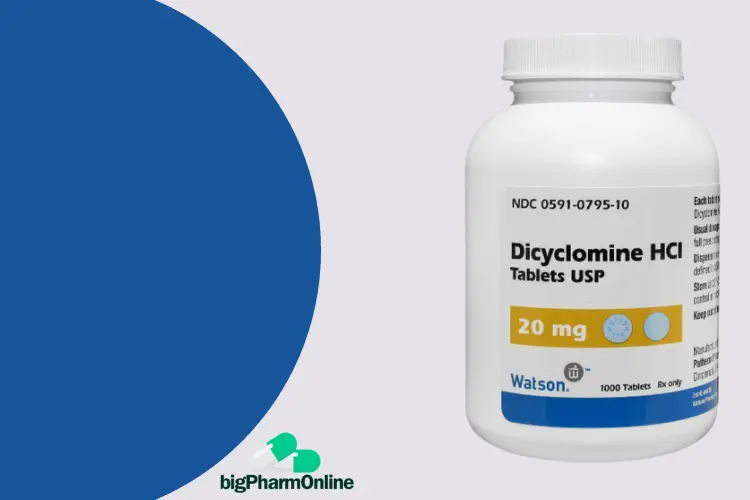
Dicyclomine, also called Dicycloverine, is a drug used in the treatment of abdominal cramps or spasms (involuntary contraction of muscles) associated with irritable bowel syndrome (IBS). It is marketed in the US under the brand name Bentyl and belongs to a class of drugs called Anticholinergics.
Dicyclomine is available in various dosage forms. It is formulated as a capsule, tablet, syrup or injectable solution. Most tablets come as either 10 mg or 20 mg. Syrups commonly contain 10 mg per 5 ml while injectable solutions often contain 10 mg per 1 ml.
The strength of each dosage form can vary depending on the manufacturer’s choices.
How Does Dicyclomine Work?
Dicyclomine is an anticholinergic drug. It works by blocking the action of acetylcholine on muscarinic receptors in the gastrointestinal tract (GIT).
Acetylcholine is a neurotransmitter, a chemical that helps neurons in the body to communicate and transmit signals (impulses) from one location to the other.
When it binds to muscarinic receptors present in the gastrointestinal tract, it causes the smooth muscles to contract. This contraction helps to move food and other substances present in the GIT across to other parts of the digestive system.
In irritable bowel syndrome, the smooth muscles in the GIT contract uncontrollably and can bring about pain and discomfort.
Dicyclomine helps to abolish this uncontrollable muscle contraction by binding to the muscarinic receptors present in them, thereby preventing acetylcholine from attaching to produce further contractions.
This action of Dicyclomine helps abolish or alleviate the pain and discomfort that comes with IBS.
How Is Dicyclomine Taken?
The recommended dosage of Dicyclomine is usually between 20 to 40 mg by mouth every 6 hours for adults. The maximum daily dose is capped at 80 mg per day because the safety and efficacy of Dicyclomine at doses beyond 80 mg per day have not been established.
Dicyclomine should be taken on an empty stomach or at least 30 to 60 minutes before a meal. Taking it ahead of eating allows reasonable time for absorption so it can reach peak levels in the bloodstream.
This enables the drug to start exerting its anti-spasmodic (anti-contraction) effects on the smooth muscles of the intestines before food comes in to trigger muscular contractions.
Essentially, it lets the medication preempt and prevent symptoms like abdominal cramping and discomfort that often accompany digestion, especially for those with irritable bowel syndrome.
What Are the Side Effects of Dicyclomine?
Muscarinic receptors are not only present in the gastrointestinal tract alone. They are also found in other glands and locations in the body.
When Dicyclomine binds to muscarinic receptors in locations outside the GIT, the effect it produces there becomes a side effect that is not needed and neither is it beneficial to you.
Some of the minor side effects of Dicyclomine are:
- Dry mouth
- Dry eyes
- Constipation
- Nausea or vomiting
- Dizziness
- Drowsiness
- Difficulty in urinating
- Blurred or double vision
- Abdominal pain or bloating
These are often minor and they resolve with time, most especially after the drug is no longer in use.
Some side effects of Dicyclomine can be serious, though often uncommon.
These serious side effects include:
- Vision changes
- Rash, itching or hives
- Swelling, especially of the face, tongue, lips, or throat
- Fever
- Fast, pounding, or irregular heartbeat
- Muscle weakness, tremors or uncontrolled movements
- Seizures
- Confusion
- Irritability
- Unusual behavior changes
- Extreme tiredness or restlessness
Elderly patients may also be more prone to confusion, drowsiness, or other cognitive changes from the anticholinergic effects of dicyclomine.
Discontinuing the drug is recommended if any severe, concerning, or persistent side effects develop. It’s important to discuss benefits and risks with your doctor.
Final Thoughts
It is safe to take Tylenol with Dicyclomine because they do not interact with each other. The fact that there are drug products that combine acetaminophen (Tylenol) and Dicyclomine into a single tablet, and also the lack of clinical research works confirming an interaction between these two, goes on to buttress the point regarding the safety of using them together.
References
- National Library of Medicine. (2023). Dicyclomine. MedlinePlus. https://medlineplus.gov/druginfo/meds/a684007.html
- Medscape. (2023). Dicyclomine. Medscape Reference. https://reference.medscape.com/drug/bentyl-dicyclomine-341987#0
- Gerriets V, Anderson J, Nappe TM. Acetaminophen. [Updated 2023 Jun 20]. In: StatPearls [Internet]. Treasure Island (FL): StatPearls Publishing; 2023 Jan-. Available from: https://www.ncbi.nlm.nih.gov/books/NBK482369/
Was this helpful?
About the Pharmacist
Dr. Lauren Smith, Pharm.D, is a dedicated licensed pharmacist in the United States with a wealth of experience in both retail and hospital pharmacy settings. She has over a decade of hands-on experience, making her an invaluable resource for patients and healthcare professionals alike. Lauren has a proven track record of conducting in-depth research to address complex medical queries, meticulously screening for potential drug interactions, and consistently recommending the most effective evidence-based therapies.





